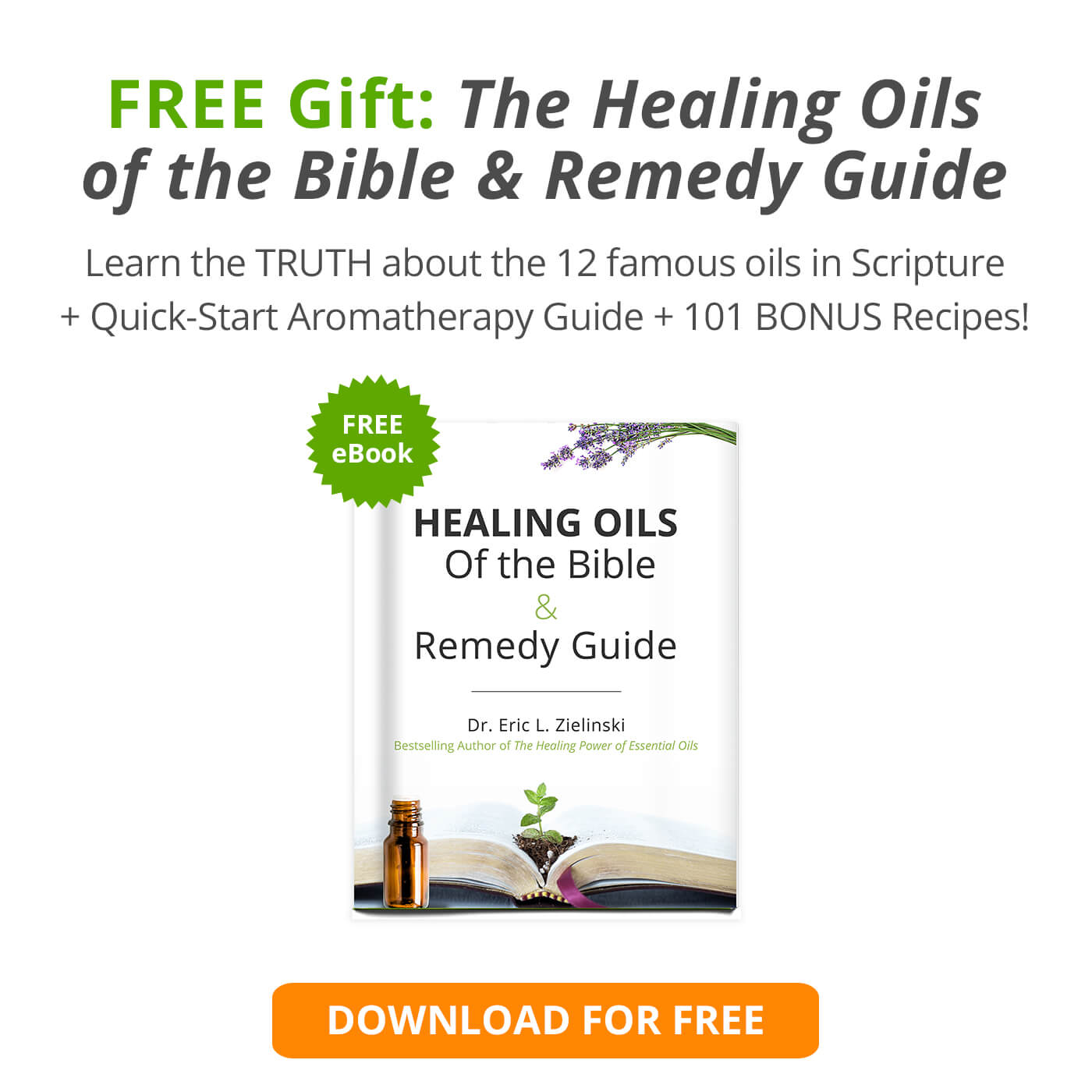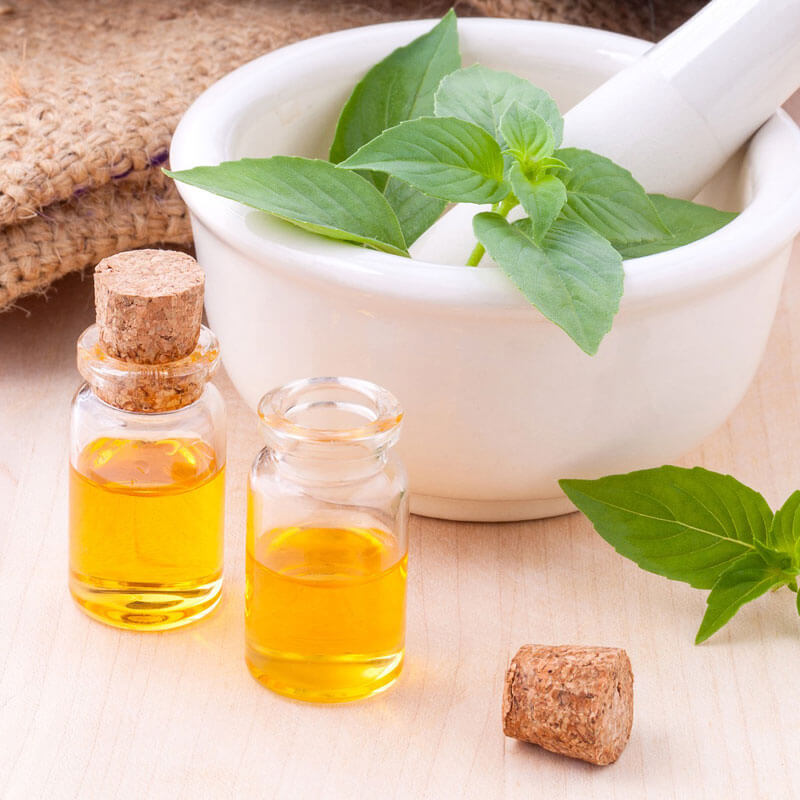Cardamom essential oil benefits include fighting cancer and soothing nausea. It is a helpful remedy for digestive wellness & antioxidant potential as well. Joining ancient aromatic spices like cinnamon and myrrh, cardamom shares many of the benefits of these classic, fragrant substances. As a whole spice or an isolated essential oil, cardamom essential oil uses are underutilized options for digestive wellness and antioxidant potential.
Table of Contents
Types of Cardamom
The common name “cardamom” can refer to two entirely different plants (and their essential oils). Elettaria cardamomum is considered to be true cardamom; while Amomum subulatum is “greater Indian” or “black” cardamom. Depending on where you live, you may know all of them as cardamon, as well.
Both types of cardamom have their benefits, and if a specific type is required in the benefits in this overview, we’ll note it. Both are from the ginger family, both have similar culinary benefits – though black cardamom isn’t as sweet – and both are good choices.
Cardamom essential oils include 1,8-cineol (also found in eucalyptus), various terpenes, and fenchyl alcohol, among other compounds.
If you’re using a cardamom essential oil for specific benefits, make sure you know which one your essential oil source has provided, based on the Latin name, and whether that’s the oil you need.
Historical Cardamom Uses
Cardamom originates in India, and as with most Indian spices, found its way to Rome in heavily utilized trade routes. (1) Even if the essential oil itself wasn’t isolated as we are able to do today, it was still enjoyed in whatever ways they could employ.
In the Ayurvedic traditions of India, however, cardamom was used as both a culinary spice and medicinal ingredient. True cardamom was the variety of choice, and the fruit pods were used for digestive wellness, nausea, detoxification, oral health, and respiratory health. (2)
This was, of course, the whole or powdered spice, which does contain the essential oil in small percentages. Many of the health benefits of cardamom extend to both whole spice preparations and essential oil.
Today, as we analyze the specific compounds in essential oils and how they behave in the lab and in the body, we are able to verify some of these actions and apply them in our own health and wellness routines.
5 Cardamom Essential Oil Benefits
Cardamom spice as a regular dietary inclusion will mirror ancient uses, or you can use the more concentrated essential oil, with proper dilution of course. These studies reflect some of the more exciting things we know about cardamom essential oil.
Some of them will be specifically about black cardamom, while most will be for the more common true cardamom. In any case, they all give us a good understanding of how best to use cardamom essential oil in our natural remedies medicine cabinet.
1. Antioxidant
As a whole spice, cardamom is among the Indian culinary choices that have demonstrated free radical scavenging capabilities in vitro. (3) As an essential oil, black cardamom is especially potent as an antioxidant, with “significant activities in all antioxidant assays,” as well as antifungal activity. (4)
Indications: A drop in culinary preparations; topical preparations for antioxidant benefits.
2. Gastroprotective
The ginger family is renowned for its digestive benefits, from healing and protective abilities to nausea relief. Like ginger, cardamom essential oil is a good aromatherapy option for nausea, having been evaluated as a part of a blend for post-operative nausea. (5) True cardamom in various forms, including essential oil, has been evaluated for its protective effects against ulcers, and found to have “significantly inhibited gastric lesions.” (6)
Indications: Inhalation for nausea relief; culinary inclusion for digestive improvement and protection.
3. Chemopreventive
The potential for cancer-preventive effects of essential oils to be used in our everyday lives is exciting and promising for the future. Alongside other potent antioxidants, the in silico studies demonstrate cardamom’s anti-tumor potential. (7) As with all essential oils, studies are underway to determine exactly how we can best utilize these benefits to prevent cancer and perhaps treat it. Until that day, we can rest easy knowing that our regular essential oil routines are contributing to overall health.
Indications: Inhalation, topical, and culinary use to access potential chemopreventive properties.
4. Antibacterial
Essential oils of the major spices and ginger family are often antibacterial, adding a warm touch to a citrus cleaning spray. In 2007, researchers tested this group of oils for their major components and ability to mitigate the growth of bacteria. The scent of cardamom mixes well with other antibacterial oils, creating the potential for some incredible synergy in fun combinations – including antimicrobial oral rinses.
Indications: Cleaning sprays, well-diluted wound healing blends, oral health blends.
5. Antispasmodic
The category of antispasmodic covers a lot of ground: easing spasms. It can apply to digestive upsets (stomach cramps, diarrhea) and respiratory issues alike (coughing, tickle in the throat). Since we’ve already covered digestive wellness, we can take a look at a traditional use of cardamom for respiratory wellness. The presence of 1,8-cineol is our first clue, shared with the respiratory poster-oil eucalyptus. Other research has been conducted toward varying kinds of respiratory benefits, including the extract (not essential oil, but sharing some similar properties) easing symptoms of asthma. (8)
Indications: Steam inhalations, personal inhalers, diffusion with an ultrasonic diffuser.
DIY Uses & Applications
For digestive health and general wellness promotion, cardamom can be included in meal prep as a simple addition to a healthy lifestyle. Just blend a single drop into sauces and ingredients that call for that spicy, smoky taste, before including the sauce in the full recipe. The lipid will dilute it, and the light inclusion will be both safe and beneficial.
Other applications include:
- Antimicrobial diffusion or sprays, with citrus, frankincense, and myrrh
- Respiratory steam inhalation, with eucalyptus
- Anti-nausea inhalation, with ginger and peppermint
- Bonus: include cardamom in summertime bug/mosquito sprays with lemon eucalyptus (9)
Ancient spices are some of the most richly scented, richly historical essential oils. Bring a touch of the past into your everyday life with the Queen of Spices, cardamom.
Have you used cardamom essential oil?
- http://www.ncbi.nlm.nih.gov/pubmed/25278182
- https://www.ncbi.nlm.nih.gov/pmc/articles/PMC3353705/
- http://www.ncbi.nlm.nih.gov/pubmed/18997285
- https://www.researchgate.net/publication/233685960_Chemistry_antifungal_and_antioxidant_activities_of_cardamom_Amomum_subulatum_essential_oil_and_oleoresins
- http://www.ncbi.nlm.nih.gov/pubmed/22392970
- http://www.ncbi.nlm.nih.gov/pubmed/16298093
- http://www.ncbi.nlm.nih.gov/pubmed/23886174
- http://www.banglajol.info/index.php/BJP/article/view/8133
- http://www.ncbi.nlm.nih.gov/pubmed/22242564







